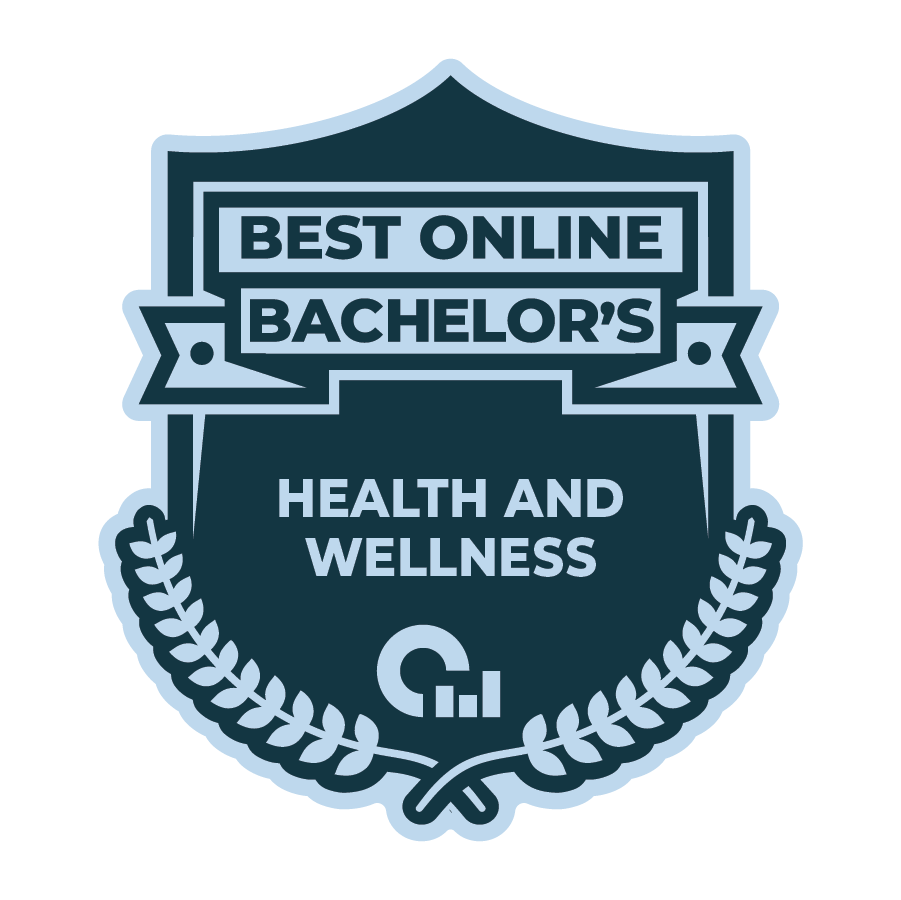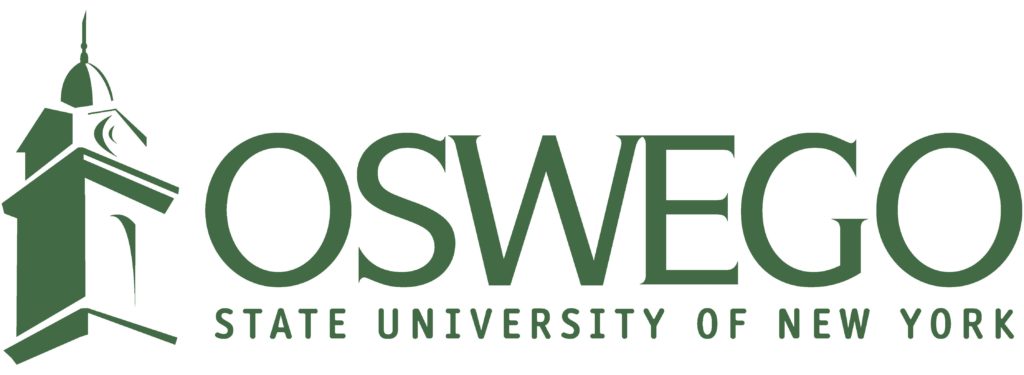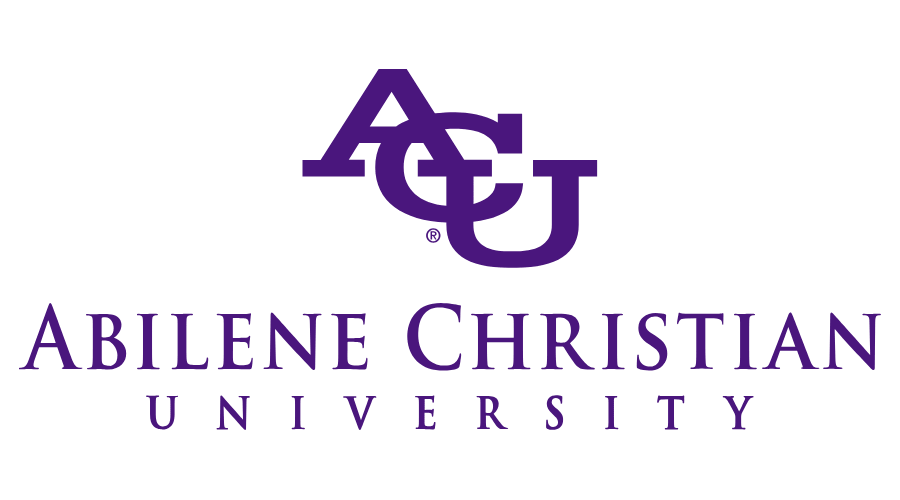 Do you want a career where you can help empower others to live healthier lives? Are you interested in earning a health and wellness degree online? Start on that path by pursuing a best online bachelor’s in health and wellness degree.
Do you want a career where you can help empower others to live healthier lives? Are you interested in earning a health and wellness degree online? Start on that path by pursuing a best online bachelor’s in health and wellness degree.
The overall focus of online health and wellness programs is to promote wellbeing and healthier lives. This is done by studying a range of subject matter. This can range from health and fitness to disease prevention to health literacy and lifespan development.
A health and wellness program typically includes studies in both physical and mental health. This means that you will likely also take courses in areas such as psychology, sociology, and health coaching. You can expect to have coursework on topics related to individual behavioral issues. These could include stress and anxiety as well as public health issues like health economics and healthcare policy.
Health and wellness are such broad areas of study. There are so many different career paths that you can take with this degree. For example, you can take the traditional route and work directly with clients in a health care facility, such as a hospital or clinic. You might work for a government agency such as the Department of Health and Human Services and help guide healthcare policy development. You might also become a health coach.
These are just a few different examples. There are many other avenues you might take with a degree from a health and wellness program.
See Also: 20 Best Sports Medicine Degree Online
What is a Health and Wellness Degree?
In typical health and wellness online programs, you mainly learn about preventative health care. You’ll cover topics such as environmental health, hygiene, and occupational wellbeing. Some programs allow you to specialize in areas such as health care administration or community and public health.
These programs cover the basics of physical health like nutrition and exercise. You will also learn how to motivate clients to make positive changes in their lives. You will have the opportunity to:
- learn how to plan and create a health and wellness program
- conduct health and wellness related research
- gain the skill needed to take on leadership roles in the health and wellness space
As you will see in our ranking below, most undergraduate programs in health and wellness require you to complete 120 semester credits. This usually takes four years of full-time study. Roughly half of those credits will be general education courses. The other half will be courses in your health and wellness major. The requirements at health and wellness schools may vary.
There is a good variety of degree options in this area. Some of the degree options in our ranking are in health management, public health, and health promotion. Others are in the fields of wellness management, fitness science, and human performance. Online health and fitness degrees are another option. Whatever path you choose, the culminating degree is most often a bachelor of science. However, one of the options on our list is a bachelor of arts degree.
What is Required for a Health and Wellness Degree?
In order to enroll in a health and wellness degree program, you will need to have your high school diploma or equivalency. Getting into a program requires that you have a strong background in chemistry and biology. These are just general requirements, though. Each college and university might have specific criteria that you must meet in order to be accepted, such as:
- Acceptable high school GPA
- Acceptable SAT or ACT scores
- Personal statement
If you plan to become a public school health educator or public health nurse, then you will need more training in order to fulfill state licensing requirements. For example, to become a nurse, you will need to complete a registered nurse (RN) program and pass boards. Health educators may need to obtain certification by passing the Certified Health Education Specialist Exam (CHES).
If you choose to become a teacher, then you may need to complete an alternative certification program or get your master’s degree in education.
How Much Can You Earn With a Health and Wellness Degree?
Being in a healthcare field often comes with the benefit of a good salary. While you won’t make as much as a nurse or doctor, a bachelor’s degree in health and wellness does have the advantage of a decent starting wage.
For example, health education specialists and community health workers earned a median salary of $42,000 per year as of 2020, according to the Bureau of Labor Statistics (BLS). With more experience, your salary is likely to increase. The top ten percent of earners in this field make a median yearly wage of $70,790. Health and wellness professionals can find satisfaction in their career!
What are the Best Health and Wellness Degrees?
Online Schools Report uses a matrix of seven criteria for evaluating the quality of online bachelor’s degrees in health and wellness. Those criteria fall into two categories: program-specific and school-wide.
There are two factors we consider for each program. They are the number of degree options that are offered and the median earnings two years after a student graduates from the program. Regarding the five school-wide criteria, we look at:
- admission rate
- graduation rate
- median debt upon graduation
- student satisfaction ratings
- accreditation
The best online bachelor’s programs in our rankings have scores for the seven criteria clearly displayed along with an overall score. Programs are listed from the highest overall score to the lowest.
A more detailed description of the OSR process can be found on our methodology page.
1. Online Bachelor of Science in Health and Wellness Management

Quick Facts:
- Length: 61 credits (not including required general education courses)
- Time to complete: 4 years (including general education courses; if attending full-time)
- Format: Online
- Tuition: $440 per credit
- This is a degree completion program specifically designed for adult learners that already have an associate’s degree or around 60 transferable college credits.
Online Program Information:
- Number of Degree Options: 1
- Median Earnings Two Years After Graduation: $44,366
School-Wide Information:
- Admission Rate: 75%
- Graduation Rate: 69%
- Median Debt Upon Graduation: $22,500
- Student Satisfaction: 4.1 out of 5 stars
- Type of Accreditation: Regional (2 out of 2 points)
OSR Score: 75
This online bachelor’s degree in health and wellness management is administered by the University of Wisconsin System. It is a multi-campus partnership between four of the system’s campuses as well as its extended learning campus.
If you already have an associate’s degree, you only have to complete the major requirements of the degree. This means that you could finish the program in about two years, provided you take classes on a full-time basis.
The courses in this program have no set meeting times, which means you can attend to your studies when your schedule allows. This is the flexibility you have of learning online.
Courses you might take in this program include:
- Research and statistics for wellness managers
- Marketing and communications for wellness managers
- Leadership and change management in health
- Health coaching
Additionally, this program has fieldwork and capstone experiences that give you the opportunity to apply what you have learned in class to real-world health and wellness settings.
2. Online Bachelor of Science in Public Health

Quick Facts:
- Length: 120 credits
- Time to complete: 4 years (if attending full-time)
- Format: Online
- Tuition: $320 per credit
- This program aligns with the competencies outlined by the Association of Schools and Programs of Public Health.
Online Program Information:
- Number of Degree Options: 6
- Median Earnings Two Years After Graduation: $50,856
School-Wide Information:
- Admission Rate: 94%
- Graduation Rate: 47%
- Median Debt Upon Graduation: $18,250
- Student Satisfaction: 3.5 out of 5 stars
- Type of Accreditation: Regional (2 out of 2 points)
OSR Score: 66.66
Southern New Hampshire University’s online health degree focuses on public health, which is a wide-ranging subject. Throughout the course of the program, you will study everything from developing wellness programs to guiding public health policy to working towards eradicating public health issues.
Additionally, you’ll learn specific skills related to public health, including:
- Using statistics to find patterns in public health
- Learning how to plan programs that use prevention strategies to improve public health
- Designing effective communications that enhance public health campaigns
If you want to use this program to prepare for further studies, Southern New Hampshire University offers a graduate program in public health. Or, you can enter the workforce after completing your bachelor’s degree.
Completion of this program can be facilitated by transferring in credits you’ve already completed. In fact, you can transfer up to 90 credits to apply towards this degree.
3. Online Bachelor of Science in Health Promotion and Wellness

Quick Facts:
- Length: 124 credits
- Time to complete: 4 years (if attending full-time)
- Format: Online
- Tuition: $399 per credit
- This program of study includes 39 credits of foundational courses, 52 credits in the major area, and 33 elective credits.
Online Program Information:
- Number of Degree Options: 1
- Median Earnings Two Years After Graduation: $26,761
School-Wide Information:
- Admission Rate: 75%
- Graduation Rate: 62%
- Median Debt Upon Graduation: $23,750
- Student Satisfaction: 3.7 out of 5 stars
- Type of Accreditation: Regional (2 out of 2 points)
OSR Score: 65
The health and wellness degree program online from Asbury University consists of shortened 8-week courses. Courses begin throughout the year (four different start times are available) for added flexibility in planning your college schedule.
Once in the program, your learning will focus on:
- Health education
- Wellness program development
- Healthcare services
- Health, aging, and society
- Human performance
Additionally, you will take classes that involve the study of public health, healthcare policy, and health economics.
This program also requires that you complete a capstone project or an advanced internship that allows you to apply what you have learned throughout your coursework.
At 124 credit hours, this is the longest program in our rankings (by four credit hours). That is something to consider with regard to cost and time. Students that graduate from Asbury have a lower-than-average debt load, but compared to some of the other programs on this list, Asbury graduates have a higher debt load upon graduation. Something else to consider is looking into financial aid opportunities.
4. Online Bachelor of Science in Wellness Management

Quick Facts:
- Length: 57-59 credits
- Time to complete: 2 years (if attending full-time)
- Format: Online
- Tuition: $295 per credit (in-state); $353 per credit (out-of-state)
- This is a degree completion program designed for students that already have an associate’s degree or have completed a similar number of credits..
Online Program Information:
- Number of Degree Options: 1
- Median Earnings Two Years After Graduation: $43,184.50
School-Wide Information:
- Admission Rate: 69%
- Graduation Rate: 66%
- Median Debt Upon Graduation: $23,311
- Student Satisfaction: 3.7 out of 5 stars
- Type of Accreditation: Regional (2 out of 2 points)
OSR Score: 64.33
The State University of New York at Oswego offers a wellness management online degree completion program for students that have already made significant headway in their college studies. You can transfer up to 90 credits into the program.
Having already completed general education requirements, you need just two years of full-time study to complete this program.
The coursework you can expect to undertake is related to wellness management. That can take many forms. For example, you will study:
- health science
- health program planning
- worksite health promotion
This program also includes a 120-hour internship requirement. The internship must be completed during the senior year of study. The internship can be done in a wide variety of settings, including:
- physical therapy clinics
- rehabilitation facilities
- fitness centers
- nursing homes
5. Online Bachelor of Science in Health Sciences – Healthy Lifestyles and Fitness Science

Quick Facts:
- Length: 120 credits
- Time to complete: 4 years (if attending full-time)
- Format: Online
- Tuition: $561-$661 per credit
- This program concentrates on fitness science and healthy lifestyles in addition to covering coursework in nutrition, exercise, and health science.
Online Program Information:
- Number of Degree Options: 1
- Median Earnings Two Years After Graduation: $50,766.5
School-Wide Information:
- Admission Rate: 73%
- Graduation Rate: 54%
- Median Debt Upon Graduation: $21,000
- Student Satisfaction: 3.9 out of 5 stars
- Type of Accreditation: Regional (2 out of 2 points)
OSR Score: 63.33
The bachelor of science online program from Arizona State University is unique to this list in that it is the only one with a healthy lifestyle and fitness science focus.
With a background in these areas, you will graduate from this program with the skills required to work in preventative medicine. This can be done in a variety of ways. Some ways include working in nutrition, fitness, wellness coaching, and many other fields.
If you choose to continue your education, this program will prepare you for that as well. Graduates have gone on to study a wide range of subjects in graduate school, including public health, nutrition, and exercise science. Additionally, graduates of this program are eligible to pursue the National Board Certified Health and Wellness Coaches certification.
Graduates of this program enjoy strong earnings two years after graduation at nearly $51,000. This is one of the highest marks on this list. Students at Arizona State also enjoy lower-than-average debt upon graduation. Don’t forget to check into financial aid options.
6. Online Bachelor of Science in Kinesiology – Health Promotion and Wellness

Quick Facts:
- Length: 120 credits
- Time to complete: 4 years (if attending full-time)
- Format: Online
- Tuition: $380 per credit
- Both traditional 16-week courses and accelerated 8-week courses are available.
Online Program Information:
- Number of Degree Options: 1
- Median Earnings Two Years After Graduation: $44,229
School-Wide Information:
- Admission Rate: 67%
- Graduation Rate: 50%
- Median Debt Upon Graduation: $21,625
- Student Satisfaction: 3.7 out of 5 stars
- Type of Accreditation: Regional (2 out of 2 points)
OSR Score: 63.33
This online, four-year program from the University of Louisiana at Lafayette focuses on health and wellness theory. Additionally, you will have opportunities to apply what you have learned by participating in a six-hour internship experience. This can be done at an approved site in your area.
Students who complete this degree will be prepared to work in a wide range of areas because of the diversity of the subject matter under study. This includes:
- Nutrition
- World health issues
- Environmental health
- Health behavior theories
- Occupational health and safety
Additionally, you will explore women’s health, epidemiology, and nutrition for fitness and sports.
Graduates of this program meet the requirements to be certified. If you choose, you can sit for the Certified Health Education Specialist (CHES) exam.
It should be noted that this program is not approved for delivery in all states. Be sure to check the program page for specific details.
7. Online Bachelor of Science in Health and Human Performance

Quick Facts:
- Length: 120 credits
- Time to complete: 4 years (if attending full-time)
- Format: Online
- Tuition: $395 per credit
- This program is based on a holistic model, so you will study the physiological, psychological, structural, and mechanical aspects of wellness.
Online Program Information:
- Number of Degree Options: 1
- Median Earnings Two Years After Graduation: $39,673
School-Wide Information:
- Admission Rate: 63%
- Graduation Rate: 62%
- Median Debt Upon Graduation: $20,764.50
- Student Satisfaction: 3.7 out of 5 stars
- Type of Accreditation: Regional (2 out of 2 points)
OSR Score: 61.67
This four-year undergraduate program from Abilene Christian University includes 56 required credits of general education courses and 64 credits of major-related coursework.
As noted above, this is a holistic program. The coursework that you must complete ranges widely by subject. Some of the courses you will take include:
- Health psychology
- Strength and conditioning
- Human performance
- Exercise and special populations
- Leadership and management for health promotion
- Biomechanics
Additionally, you are required to complete a comprehensive capstone experience, which usually takes place during your senior year of studies. This capstone experience challenges you to synthesize what you have learned and demonstrate mastery of core concepts related to health and wellness.
You can use these educational experiences to begin a career in any number of wellness-related areas. Graduates of this program have gone on to be:
- coaches
- sporting scouts
- fitness trainers
- fitness instructors
- wellness coordinators
- exercise physiologists
8. Online Bachelor of Science in Health and Wellness

Quick Facts:
- Length: 120 credits
- Time to complete: 4 years (if attending full-time)
- Format: Online
- Tuition: $371 per credit
- This program offers flexible learning options like an optional internship and the ability to enroll in an accelerated bachelor’s-to-master’s program.
Online Program Information:
- Number of Degree Options: 1
- Median Earnings Two Years After Graduation: $35,394
School-Wide Information:
- Admission Rate: 100% (this institution has an open admissions policy)
- Graduation Rate: 33%
- Median Debt Upon Graduation: $24,027.50
- Student Satisfaction: 3.8 out of 5 stars
- Type of Accreditation: Regional (2 out of 2 points)
OSR Score: 58.33
The bachelor of science online in health and wellness from Purdue University Global has a multidisciplinary approach. This means that you will take traditional health and wellness courses that are mixed with topics related to the body, spirit, and mind.
If you enroll in this program, you will have the option of choosing electives that lead to a specialization. You can choose from nutrition or health science, depending on your interests and career goals.
Core coursework will be completed in:
- Current trends in exercise and fitness
- Contemporary diet and nutrition
- Health and wellness programming
- Complementary and integrative medicine
This program also requires that you complete a capstone project. A capstone project is a detailed research project that synthesizes the knowledge and skills that have been gained over the course of the program. It is a means of demonstrating what you know and that you possess the ability to apply that knowledge to a real-world situation.
9. Online Bachelor of Science in Health and Wellness

Quick Facts:
- Length: 120 credits
- Time to complete: 4 years (if attending full-time)
- Format: Online
- Tuition: $314 per credit (in-state); $365 per credit (out-of-state)
- This online program focuses on the health care system in the United States, health literacy, and disease prevention, among other topics.
Online Program Information:
- Number of Degree Options: 1
- Median Earnings Two Years After Graduation: $48,143
School-Wide Information:
- Admission Rate: 100% (this institution has an open admissions policy)
- Graduation Rate: 49%
- Median Debt Upon Graduation: $15,055
- Student Satisfaction: 2.2 out of 5 stars
- Type of Accreditation: Regional (2 out of 2 points)
OSR Score: 58.33
At Granite State College, you can complete a health and wellness online degree in about four years of full-time study. During the course of the program, you will explore many topics related to health and wellness. This includes:
- Nutrition
- Anatomy
- Biology
- Population health
- Principles of exercise science
- Issues in women’s health
In order to graduate from the program, you will need to complete:
- 52 credits of major requirements
- 28 credits of open electives
- 40 general education requirements
When you graduate, you have a good chance of doing so with minimal debt. Graduates of Granite State College have a median debt upon graduation of $15,055, which is far lower than the national average of $36,510. In fact, the $15,055 figure is the lowest of all the schools in this ranking.
And while that is a significant benefit, Granite State College does not get high marks from its students. With a score of 2.2 out of 5 in terms of student satisfaction, they have the lowest mark of any school on this list.
10. Online Bachelor of Arts in Health, Fitness, and Wellness

Quick Facts:
- Length: 120 credits
- Time to complete: 4 years (if attending full-time)
- Format: Online
- Tuition: $460 per credit
- This bachelor of arts program helps you develop the necessary leadership skills required for assisting others in making positive changes in their lives.
Online Program Information:
- Number of Degree Options: 1
- Median Earnings Two Years After Graduation: $35,178.50
School-Wide Information:
- Admission Rate: 62%
- Graduation Rate: 15%
- Median Debt Upon Graduation: $26,317
- Student Satisfaction: 3.1 out of 5 stars
- Type of Accreditation: Regional (2 out of 2 points)
OSR Score: 55
As the only bachelor of arts program on this list, this program from Tiffin University gives you a different option for pursuing a higher education in the health and wellness space.
Not only will you learn skills that allow you to plan health and fitness programs for individuals, groups, and communities, but you will also gain competencies related to becoming a certified strength and conditioning specialist by the National Strength and Conditioning Association.
The knowledge and skills you gain in this program are applicable to many different career pursuits. Likewise, you can utilize these skills with clients of all ages and athletic abilities.
To give you even more experience, this program includes a required 150-hour internship in which you will work under the supervision of a health, fitness, or wellness professional. The internship can be at an approved location in your area, so there is no on-campus requirement.
Frequently Asked Questions
Where can I work with an online bachelor’s degree in health and wellness?
One of the biggest advantages of getting a degree in this field through health and wellness degree programs is that there are a wealth of employment opportunities. Health and wellness professionals work in many different settings for many different employers.
For example, the BLS notes that the largest share of community health workers (18 percent) are employed by government agencies. In some cases, this might be a local agency, like a county health department, or a much larger federal agency, like the National Institutes of Health.
But this is just one employment avenue. Other popular employers for community health workers include:
- Individual and family services, like family doctor’s offices (17 percent)
- Religious, grant making, civic, professional, and similar organizations, like healthcare non-profits (12 percent)
- Hospitals (9 percent)
- Outpatient care centers (8 percent)
If you pursue a specialty in health education, there are many different career paths you might choose. For example, employment with a government agency is once again most common (with 24 percent of health education specialists working for local, state, or federal agencies).
Other common options include:
- Hospitals (21 percent)
- Individual and family services (7 percent)
- Outpatient care centers (7 percent)
- Religious, grant making, civic, professional, and similar organizations (6 percent)
Of course, the options listed above are just some of the most common for two types of careers that health and wellness professionals may pursue. You can also become a teacher, a public health worker, or a public policy advocate. You might work as a health coach, a prevention specialist, or a wellness specialist in a residential care facility. You might also become an athletic trainer, a corporate wellness specialist, or go to work for yourself by opening a health and wellness consulting business.
While some of these occupations might require additional education and work experience, a bachelor’s degree in health and wellness is a great place to start.
What is the job outlook for careers in health and wellness?
According to the BLS, employment in this field is expected to grow by 17 percent by 2030. This represents much faster than average growth.
In all, it is estimated that more than 16,000 jobs in the health and wellness field will need to be filled in the coming years. Some of these jobs will be vacancies left by workers that have exited the field. Others will be new positions that are created to meet the increasing demand for health and wellness services. The COVID-19 pandemic has certainly resulted in an increased focus on health and wellness.
With more and more people seeking out health and wellness services, it is reasonable to expect that as a graduate with good grades and solid recommendations from professors that you will be able to find a job in short order upon graduation. In some cases, you might even have a job lined up before you graduate.
Either way, it is comforting to have some measure of assurance that the field in which you are going to work will experience a greater need for workers in the coming years.
Will I eventually need to get a master’s degree?
Whether or not you get a master’s degree depends on what your goals are for your future.
While there are many different jobs you can pursue with a bachelor’s degree in health and wellness, some positions will be off-limits unless you have a bachelor’s degree or higher. For example, administrative health positions might require you to have a master’s degree in healthcare management or a similar field.
As another example, if you decide you want to eventually teach at the college level, you will need to get a master’s degree in health and wellness (or a related area) and then get a doctorate as well, since most colleges and universities require their faculty to have terminal degrees.
When health and wellness professionals earn a wellness degree through these best online bachelor’s programs, they will be on their way to helping people lead healthier lives and have improved physical health as well as a healthy lifestyle.
Related Resources:





